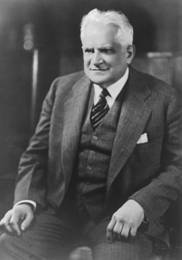Education
He studied high school at the Federal College Choir of First Category (1885-1890) and attended law school there, validating the Central University of Venezuela his Ph.D. in political science (21/10/1895).


He studied high school at the Federal College Choir of First Category (1885-1890) and attended law school there, validating the Central University of Venezuela his Ph.D. in political science (21/10/1895).
Impeached in his hometown, he devoted himself to his practice (1895-1909), coming to occupy the state government secretariat Falcon. Guided by the teachings of European positivism, began a long series of studies on history, sociology, ethnography and language of Venezuela. His analysis of "American imperialism", published in El Heraldo de Coro (June 1899), and his study of Simón Bolívar, written in late 1900, settled his reputation as a thinker of the new school. Partner of The Cripple, intellectuals and established relations of friendship with José Gil Fortoul, Laureano Vallenilla Lanz, Lisandro Alvarado and others, standing out as one of the leading figures of the so-called generation Venezuelan positivism. Member of the Federal Court of Appeal (1909-1913) was incorporated on December 11, 1910, the National Academy of History with an important work on the insurrection of the blacks of the Serrania de Coro in 1795 and in 1911, met several of his works, scattered in newspapers and magazines, in the volume Studies on characters and events of Venezuelan history. In 1912, he was part of the review committee that initiated the reform of the Civil Code and the Civil Procedure and Criminal Procedure. Attorney General of the Republic (1913), he served as Minister of Internal Affairs (October 1914-September 1917), presented in 1916, before Congress the new draft Civil Code whose innovations in matters of marriage, civil registration, affiliation natural and hereditary succession remained in place for nearly half a century. Falcón state senator and president of Congress (1918 and 1922), was sent as Minister Plenipotentiary of Venezuela to the United States (1922-1924) and then as a special ambassador to Peru (December 1924) where he chaired the centenary of the Battle of Ayacucho.
He held back the portfolio of Home Affairs (January 1925-April 1929) and published in 1928, his studies of sociology Venezuelan extended version with new works of his studies in 1911. Appointed Ambassador of Venezuela in Washington (June 1930-December 1935), published in the United States and its current regime Venezuela (1935), government and defense synthesis of Juan Vicente Gómez. Included in the list of embezzlement after Gomez's death and again after October 18, 1945, was the only officer of the defunct regime decided to face attempted in civil suits against him, taking his own defense and triumphing over the allegations that were made. He kept also a controversial defense of the person and government of Juan Vicente Gómez to his detractors. Retired from public life, he devoted himself to his studies of history, law and sociology. His memoirs were published posthumously in 1963. His library, consisting of 147,119 volumes, located in the new building of the National Library (Forum Libertador) in Caracas, was donated to the nation by his descendants. Guy number of the National Academy of History (1910), the Academy of Political Science (1915), and of the Venezuelan Academy of Language (1917), was director of the National Academy of History (1927-1930 and 1943-1945).
